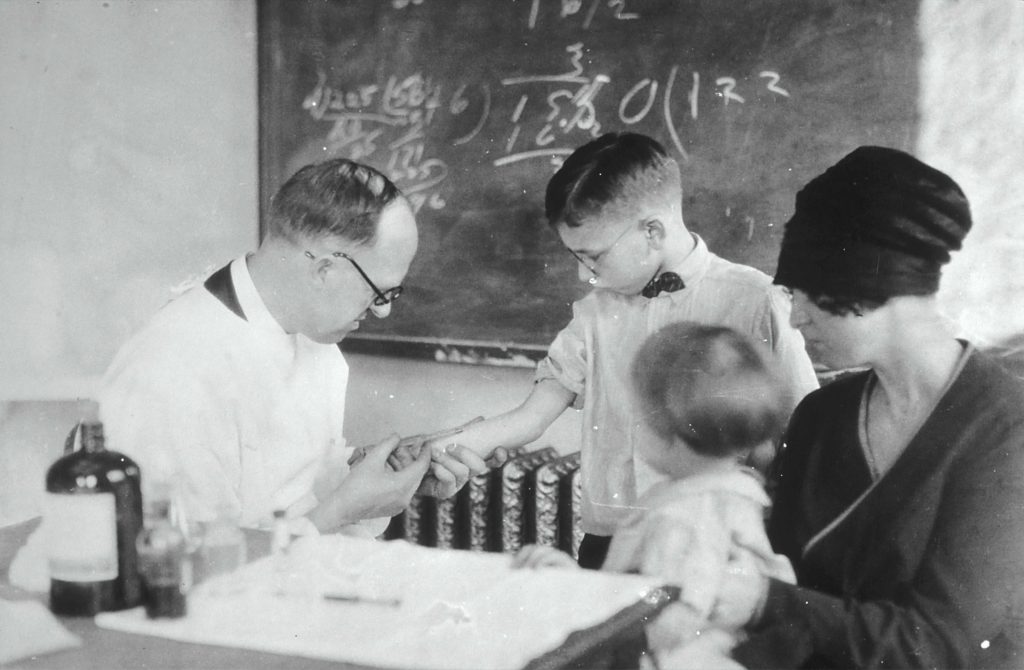
His baptism and temptation over and His first disciples called, Jesus now begins His ministry. Whereas Luke gives a better chronological account and includes detail on Jesus’ preaching ministry in Galilee, Matthew’s concern with the broader picture paints a clear understanding of what Jesus considered His ministry, “Jesus went throughout Galilee, teaching in their synagogues, preaching the good news of the kingdom, and healing every disease and sickness among the people.” From this verse we learn that Jesus had a three-point ministry model.
Yet the first thing we learn about that model is that it was mobile. The fact that Jesus went to the people instead of merely setting up shop (and expecting people to come to Him) is a powerful example of how we must have a missionary mindset in ministry. Lost and hurting people can’t find us because they are not just lost, they are spiritually dead. Jesus knows that the paralyzed and injured can’t walk to Him – how much less so the dead! The people of God must always go to the lost!
Going, He taught. Teaching the people in their synagogues afforded benefit to those who were seeking God, and allowed that the people could perceive Jesus as a teacher – a man worthy of respect, a man with things to say that are a blessing to hear. Of course, it is a small jump from teaching to preaching – for as soon as you begin teaching material from God instead of material from others, you have crossed the invisible line between teaching and preaching. Teaching can be done without spiritual authority, but preaching relies on it. To that point, it might well be said that Jesus only preached. One commentator writes, “It is unlikely that Matthew intends any sharp distinction between ‘teaching’ and ‘proclaiming’. The choice of ‘teaching’ for synagogue activity may simply reflect the educational orientation of synagogue life.”
Lastly, Jesus healed. It would become what he was known for, and it would become the great draw for the multitudes.
To the worldly, healing is far more impactful than teaching and preaching. But God knows that healing unredeemed flesh (that is, flesh that is not yet fit for glory) is temporary at best. Teaching that results in a redeemed mind, and preaching that results in a changed soul – these are far more beneficial than restored bodies that still wind up in a grave.
Make no mistake – healing is a needed Kingdom work. But it is also a risky work, because apart from the truth, the gift of restored health can easily be perceived as more valuable than the giver of the gift. To do wonders and miracles without also communicating the truth of God is to risk becoming a kind of medical Santa Claus. And Jesus does not want to be known as that. Jesus is the Truth, and the Truth seeks to be known as truth, not just a wonderful experience or even just as a tremendous blessing. That is because truth does more than just heal. Truth imparts responsibility. And this is truth: we all have a responsibility to honour God, whether we are healed or not.
The Lord Jesus Himself never held Divine Healing meetings. He did heal many. He did heal people in crowds (because He was fulfilling prophecy as to the signs that would accompany the Messiah), but He never advertised such meetings, but rather avoided as far as He could all such public manifestations of His healing powers. He strictly charged those whom He healed to keep still about it, lest men should make Him a mere Healer and not what He really was, a Teacher and a Saviour of the soul.
R.A. Torrey
APPLICATION: Intentionality
It takes much intentionality to keep the main thing the main thing. How are you keeping the truth of God the main thing in the ministry of Christ through you?

